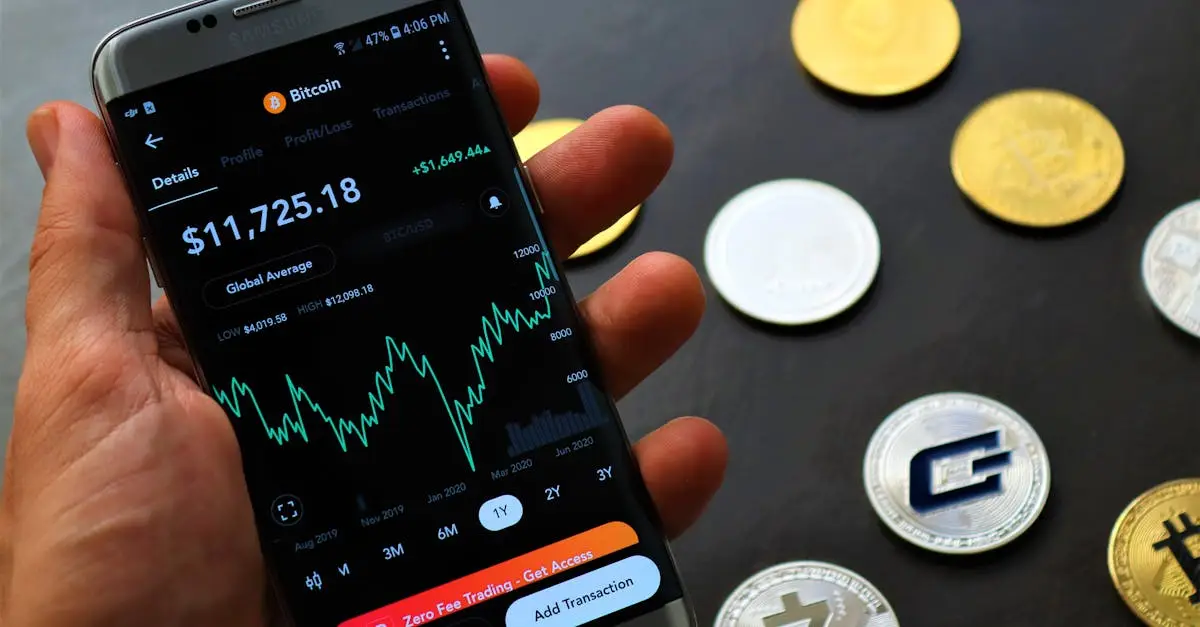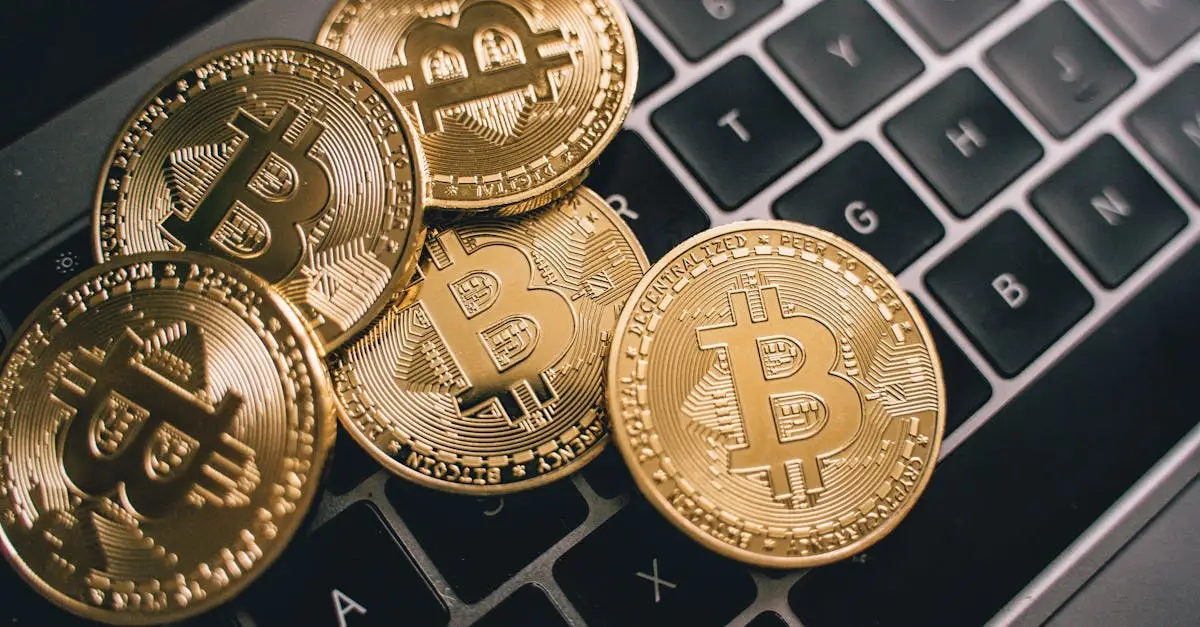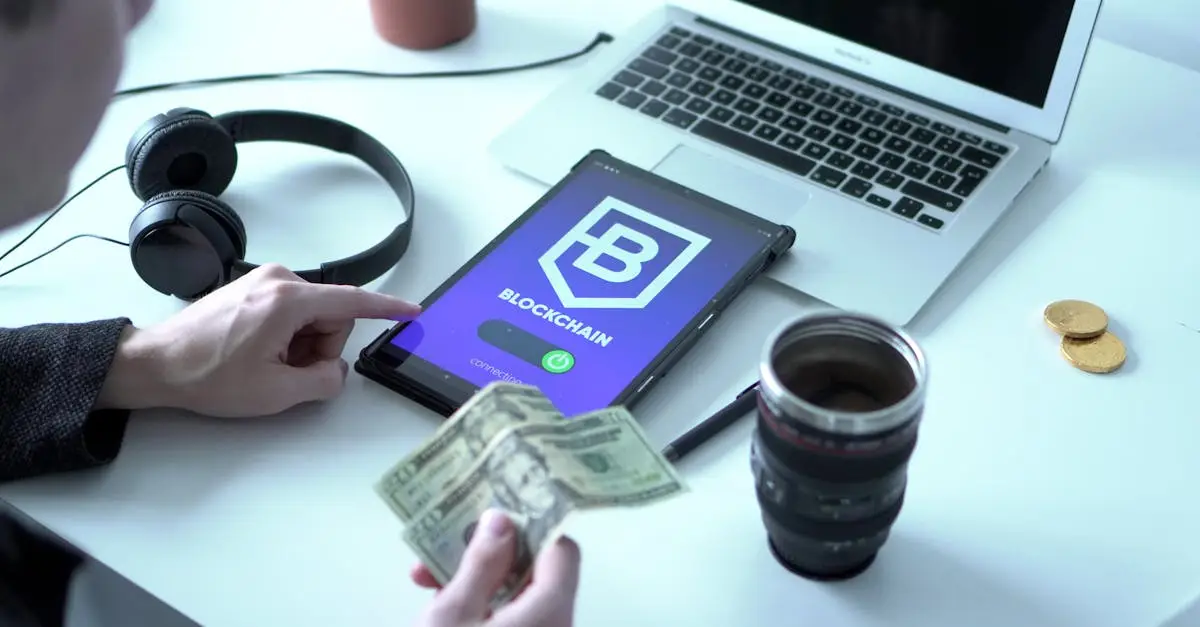The Ultimate Guide to Crypto Wallets. In the fast-evolving world of cryptocurrency, digital assets need secure storage solutions. Crypto. wallets play a vital role in safeguarding your investments, allowing you to store, send, and receive various cryptocurrencies securely. This comprehensive guide will delve into the intricate world of crypto wallets, covering essential topics such as types of wallets, security measures, popular options in the market, and much more.
Understanding the Importance of Wallets in the Crypto World. In a decentralized landscape where users have full control over their assets, wallets act as digital vaults. These wallets store private keys that provide access to your funds on the blockchain. Without a secure wallet, the risk of unauthorized access and potential loss of funds increases significantly. The choice of crypto. wallet is crucial to ensure the safety and accessibility of your digital assets.
- Role of wallets in the cryptocurrency ecosystem
- Importance of securing private keys
- Control and ownership provided by crypto wallets
Types of Crypto Wallets: Hot, Cold, and Hardware. When it comes to crypto wallets, understanding the distinctions between hot, cold, and hardware wallets is essential. Hot wallets are connected to the internet, making them more susceptible to hacking, while cold wallets store private keys offline. Hardware wallets provide an extra layer of security by keeping the keys on a physical device, safeguarding against online threats.
- Differences between hot, cold, and hardware wallets
- Pros and cons of each wallet type
- Security implications for storing digital assets
| Wallet Type | Main Features |
|---|---|
| Hot Wallet | Connected to the internet, convenient for frequent transactions |
| Cold Wallet | Offline storage, enhanced security against online threats |
| Hardware Wallet | Physical device for key storage, protection from hackers |
Securing Your Crypto Assets: Best Practices for Wallet Safety. Security should be a top priority when dealing with crypto. assets. Implementing best practices like using strong passwords, enabling two-factor authentication, and avoiding public Wi-Fi networks can help protect your funds from unauthorized access. Regularly updating your wallet software and staying vigilant against phishing attempts are crucial steps in ensuring the safety of your investments.
- Importance of security measures in crypto wallets
- Tips for enhancing wallet safety
- Common security threats in the crypto. space
Factors to Consider When Selecting a Crypto Wallet. Choosing the right crypto. wallet involves evaluating various factors such as user-friendliness, supported cryptocurrencies, fees, and security features. A wallet that aligns with your investment goals and risk tolerance is essential for a seamless digital asset management experience. Conducting thorough research and understanding your needs can lead to a well-informed decision when selecting a wallet.
- Key considerations for selecting a crypto wallet
- Personalized factors to account for in your choice
- Impact of wallet features on user experience
Understanding the Different Types of Crypto Wallets
In the world of Crypto., a crypto wallet is a digital tool that allows users to store, send, and receive various cryptocurrencies securely. With the rise of digital assets, understanding the different types of crypto wallets is essential for anyone looking to venture into the world of Crypto. investments. Let’s explore some of the most common types of crypto wallets to help you make informed decisions.
When it comes to crypto wallets, there are two main categories: hot wallets and cold wallets. Hot wallets are connected to the internet, making them convenient for frequent transactions but potentially more vulnerable to cyber threats. On the other hand, cold wallets store cryptocurrency offline, providing enhanced security but less accessibility for regular trading.
The Importance of Choosing the Right Crypto Wallet
Selecting the right crypto wallet is crucial to safeguard your digital assets and ensure hassle-free transactions. The following are some key factors to consider when choosing a crypto wallet:
1. Security: Prioritize wallets with robust security features, such as two-factor authentication and encryption, to protect your funds from unauthorized access.
2. User-Friendliness: Opt for wallets that offer an intuitive interface and seamless user experience to simplify the management of your cryptocurrencies.
3. Supported Assets: Ensure that the wallet supports a wide range of cryptocurrencies to accommodate your diverse investment portfolio.
4. Backup and Recovery: Choose wallets that provide reliable backup and recovery options, such as seed phrases, to secure your funds in case of device loss or failure.
To further enhance your understanding of different types of crypto wallets and their features, consider exploring comprehensive resources like the eBook Understanding the Different Types of Crypto Wallets.
Cryptocurrency enthusiasts can benefit greatly from utilizing hardware wallets, a type of cold wallet that stores private keys offline on a secure physical device. By isolating the keys from online threats, hardware wallets offer an additional layer of protection for your Crypto. assets.
Another popular option is desktop wallets, which are software applications installed on your computer. While desktop wallets provide easy access to your funds, it’s essential to ensure the security of your device by keeping it updated and free from malware.
Exploring Mobile and Paper Wallets
Mobile wallets, as the name suggests, are crypto wallets designed for mobile devices, offering convenience and accessibility for users on the go. These wallets are ideal for everyday transactions and can be easily downloaded from app stores.
For those seeking a more secure and offline option, paper wallets are physical documents that contain your public and private keys. While paper wallets offer enhanced protection against cyber threats, it’s crucial to store them in a safe location to prevent loss or damage.
In conclusion, selecting the right crypto wallet is a fundamental step in managing and safeguarding your digital assets. By understanding the different types of crypto wallets and their features, you can make informed decisions that align with your investment goals and security preferences.
Tips for Securing Your Crypto Wallet
Interested in learning more about how to protect your digital assets? In today’s digital age, Crypto. security is paramount. Whether you’re new to the world of cryptocurrencies or a seasoned investor, safeguarding your Crypto. assets should be a top priority. Below, we’ll explore some essential tips to help you secure your Crypto. wallet and keep your investments safe.
Use a Hardware Wallet
One of the most secure ways to store your Crypto. is by using a hardware wallet. These physical devices store your currency offline, making it less susceptible to hacking. Popular hardware wallets include Ledger Nano S, Trezor, and KeepKey. By keeping your Crypto. offline, you significantly reduce the risk of cyber theft.
Enable Two-Factor Authentication
Adding an extra layer of security to your Crypto. wallet is crucial. Enable two-factor authentication (2FA) wherever possible to ensure that even if your password is compromised, a second form of verification is required to access your account. This additional step can prevent unauthorized access and protect your funds.
Regularly Update Your Software
Keeping your wallet software up to date is essential for maintaining security. Software updates often include patches for any vulnerabilities that hackers could exploit. By staying current with the latest versions, you ensure that your Crypto. wallet is equipped with the most recent security features.
Backup Your Wallet
Don’t overlook the importance of backing up your Crypto. wallet. In the event of a hardware failure or loss, having a secure backup ensures that you can recover your funds. Consider using encrypted external storage or a secure cloud service to store your backup and keep it separate from your primary storage location.
Educate Yourself
Continuously educating yourself about Crypto. security best practices is key to protecting your investments. Stay informed about the latest threats and scams in the Crypto. space to avoid falling victim to malicious actors. Resources such as online forums, blogs, and reputable websites can provide valuable insights into Crypto. security measures.
For more in-depth strategies on securing your Crypto. wallet, consider checking out this guide.
Importance of Backup and Recovery Methods in Crypto Wallets
When dealing with Crypto, it is crucial to understand the significance of implementing robust backup and recovery methods in your crypto wallets. Whether you are new to the world of cryptocurrencies or a seasoned investor, protecting your digital assets should be a top priority.
The Risks of Operating Without Backup and Recovery Plans
Without proper backup and recovery measures, individuals and businesses are exposing themselves to a myriad of risks. One of the most common threats is the potential loss of access to your funds due to technical issues, password misplacements, or cyberattacks. In the absence of backups, the loss of private keys could result in permanent loss of funds.
Implementing Secure Backup Strategies
To mitigate the risks associated with Crypto wallets, it is essential to implement secure backup strategies. One effective method is to regularly export your private keys and store them in encrypted offline devices. By keeping physical copies of your private keys in secure locations, you can prevent permanent loss in case of digital mishaps.
Another recommended strategy is to use hardware wallets or secure cloud storage services to store encrypted backups of your wallet data. These methods add an extra layer of protection and ensure that your assets remain secure even in the event of device failures or data breaches.
Recovery Procedures in Case of Emergency
In the unfortunate event of losing access to your crypto funds, having a well-defined recovery plan can make all the difference. By following predetermined procedures, such as using seed phrases or accessing backup files, you can regain control of your assets without facing irreversible consequences.
It is advisable to test your recovery plan periodically to ensure its effectiveness and make any necessary adjustments. By staying proactive and prepared, you can minimize the impact of potential emergencies and safeguard your investments.
Final Thoughts
As the Crypto market continues to expand, ensuring the security of your digital assets should be a top priority. By implementing robust backup and recovery methods in your crypto wallets, you can protect yourself from potential risks and secure your investments for the long term.
For further insights on the importance of backup and recovery methods in crypto wallets, consider exploring resources like Importance of Backup and Recovery Methods in Crypto Wallets.
Frequently Asked Questions
Why is backup important for crypto wallets?
Backing up your crypto wallet is crucial to ensure that you can recover your assets in case of device loss, damage, or theft. Without a backup, the risk of permanently losing access to your cryptocurrencies is significantly higher.
What are the recommended backup methods for crypto wallets?
1. Mnemonic Phrase Backup: Most crypto wallets provide a mnemonic seed phrase that you should write down and keep in a secure place.
2. Cloud Backup: Store encrypted backups of your wallet data in secure cloud storage.
3. Hardware Wallet Backup: If you use a hardware wallet, make sure to follow the backup instructions provided by the manufacturer.
How often should I perform a backup of my crypto wallet?
It is recommended to perform regular backups of your crypto wallet after any significant change, such as adding new accounts or making transactions. Additionally, consider backing up your wallet whenever you update your wallet software or make changes to your security settings.
What is the role of recovery methods in crypto wallets?
Recovery methods in crypto wallets are designed to help you regain access to your funds in case you lose access to your wallet due to device failure, loss, or other unforeseen circumstances. By setting up proper recovery methods, you can restore your wallet and recover your cryptocurrencies securely.
What are the common types of recovery options available for crypto wallets?
1. Seed Phrase Recovery: Using the mnemonic seed phrase provided during the wallet setup to restore your wallet on a new device.
2. Multi-Signature Recovery: Setting up multi-signature wallets that require multiple keys for recovery, adding an extra layer of security.
3. Hardware Wallet Recovery: Utilizing the recovery process specific to hardware wallets, following the device’s instructions carefully.
How can I test the recovery process of my crypto wallet?
You can test the recovery process of your crypto wallet by deliberately initiating the recovery steps on a separate device to ensure that you can successfully restore your wallet and access your funds. Make sure to follow the instructions provided by your wallet provider during the test.
Where can I find more information about backups and recovery for crypto wallets?
For additional details on backups and recovery methods for crypto wallets, you can visit the official websites or support pages of popular wallet providers. Moreover, you can explore CoinDesk’s guide on storing bitcoins for comprehensive information on securing your cryptocurrencies.
Conclusion
Cryptocurrency wallets play a crucial role in the world of digital assets, providing a secure and convenient way to store, manage, and transact with crypto. Understanding the importance of choosing the right wallet, implementing best security practices, and being aware of potential risks are fundamental steps for all crypto users. With a wide range of wallet options available, each with its unique features and security measures, individuals must evaluate their needs and preferences to select the most suitable wallet.
As we explored the various types of wallets, including hot, cold, and hardware wallets, it became evident that security is a top priority when dealing with crypto assets. Cold wallets, such as hardware wallets, offer offline storage and enhanced protection against cyber threats, while hot wallets provide easy access for frequent transactions. Striking a balance between security and convenience is essential for a well-rounded wallet strategy.
- Choosing a wallet with multi-signature authentication can significantly enhance security measures.
- Backup and recovery procedures should be diligently followed to prevent the loss of funds.
- Implementing best practices like strong passwords and two-factor authentication is essential for wallet safety.
When selecting a crypto wallet, factors like user-friendliness, supported cryptocurrencies, fees, and security features must be carefully considered. Wallet recommendations from industry experts can provide valuable insights, guiding users towards reputable and reliable options like Ledger Nano S, Trezor Model T, and MetaMask. By exploring the user-friendliness and compatibility of different wallets, investors can make informed decisions that align with their specific needs.
As the crypto landscape continues to evolve, incorporating smart wallet technology and decentralized finance (DeFi) integration, users are presented with advanced functionalities that offer automated trading, personalized investment strategies, and expanded financial opportunities. It is crucial for individuals to stay informed about emerging trends and innovations in the realm of crypto wallets to maximize their investment potential.
- Smart wallets represent the next generation of digital asset management, leveraging AI and automation for optimized trading experiences.
- DeFi integration is reshaping traditional financial services by providing decentralized lending, staking, and yield farming options.
- Interoperability and cross-chain support are fostering seamless asset management across various blockchain networks.
In conclusion, the realm of crypto wallets offers a diverse array of choices and features tailored to meet the evolving needs of investors and traders in the digital economy. By prioritizing security, conducting thorough research, and staying informed about the latest trends, individuals can navigate the crypto space with confidence and safeguard their assets effectively. Embracing technological advancements and best practices in wallet management is key to unlocking the full potential of digital assets in the modern financial landscape.

I am Ethan Grant, a finance and cryptocurrency enthusiast with over a decade of involvement in the financial sector. My journey began with a passion for investment strategies, market analysis, and digital assets. Since then, I have dedicated my time to helping others navigate the complexities of the financial world. My insights are based on practical knowledge and a deep understanding of market trends, which allows me to offer valuable and reliable guidance.
Over the years, I have had the opportunity to work with several investment firms, which has further fueled my passion for cryptocurrencies and blockchain technology. I believe that digital assets have the power to promote financial independence, and today, I share my experiences and knowledge through articles, market analyses, and investment tips on Cryptofinanceinsider.
As an author, my commitment is to inform in the best way possible about the world of finance. I enjoy addressing topics in a straightforward and honest manner, which I believe resonates with both beginners and experienced investors. My goal is to make complex financial concepts more accessible to everyone.







